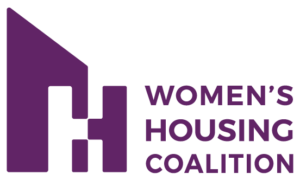
Anti-discrimination Bill Helps More People Find Affordable Housing
Maryland lawmakers passed legislation in March that makes it illegal for landlords to discriminate against tenants based on how they pay their rent, including the use of government housing vouchers.
With housing vouchers, the federal government provides funds to state and local agencies to fill the gap between what families can afford to pay and local rents. The Housing Choice Voucher (HCV) program is the nation’s largest rental housing program, serving over 2.2 million households. These programs only work if landlords are willing to accept the subsidies and rent to voucher holders.
Federal law does not prevent landlords from rejecting all housing vouchers so a growing number of states, like Maryland, have enacted laws, known as “source of income” protection laws, that can increase voucher acceptance. These laws prohibit discrimination based on income sources such as alimony, disability benefits, and housing vouchers.
This Bill will add “source of income” to a list of prohibited forms of housing discrimination that include race, religion, gender identity and disability. It will effectively ban landlords with three or more properties and management companies from having policies excluding tenants who use government assistance, such as Housing Choice vouchers, commonly known as “Section 8.”
Voucher holders are often seen as undesirable tenants by landlords and, therefore, denied the opportunity to rent homes and apartments. This is a huge win for those who use vouchers to create an affordable housing option for themselves and their families.
More available housing options can mean a greater overall satisfaction with a person’s neighborhood and quality of life. According to the Federal Reserve Bank of Boston, “While many voucher holders begin their housing searches with similar aspirations and priorities, those who locate in higher-opportunity areas are significantly more likely to realize their neighborhood preferences and goals—and they are happier with the quality of life in their communities. Families who located in higher-opportunity areas were no more likely than those who located in lower-opportunity areas to report that their children had difficulty adjusting to the neighborhood following their most recent move.”
With unemployment rates skyrocketing and many people facing financial uncertainty affordable housing is more important than ever and bills like these will help ensure stability for individuals and families.
